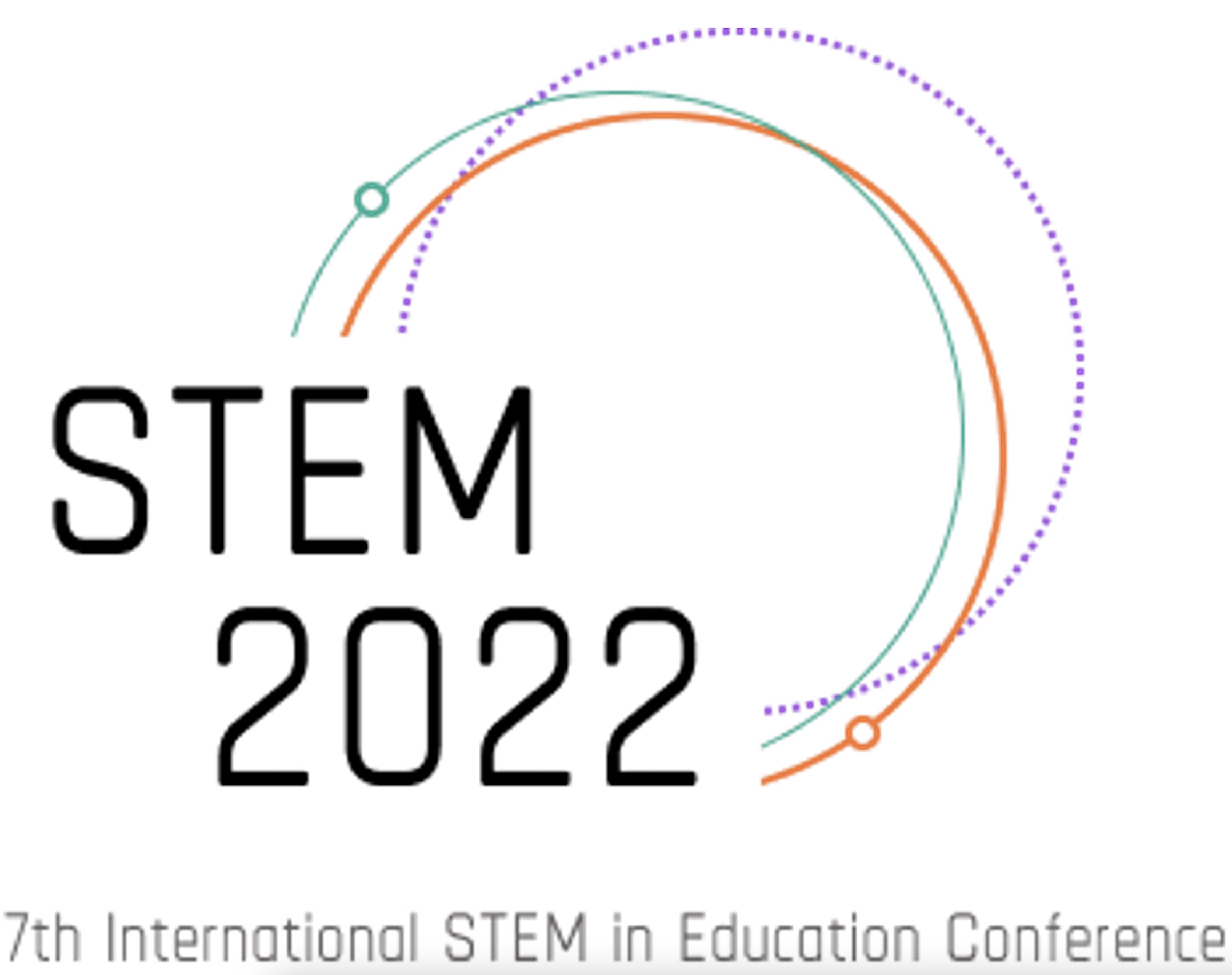ENGAGING STUDENTS IN MATH THROUGH SOCIAL JUSTICE TIKTOK
Keywords:
Engaging students, STEM education policy & practice, Pedagogy and curriculumReferences
Aslan Tutak, F., Bondy, E., & Adams, T. L. (2011). Critical pedagogy for critical mathematics education. International Journal of Mathematical Education in Science and Technology, 42(1), 65–74. https://doi.org/10.1080/0020739x.2010.510221
Atweh, B., & Ala’i, K. (n.d.). Socially Response-able Mathematics Education: Lessons from Three Teachers. In J. Dindyal, L. P. Cheng, & S. F. Ng (Eds.), Mathematics education: Expanding horizons (Proceedings of the 35th annual conference of the Mathematics Education Research Group of Australasia (pp. 98–105). Singapore: MERGA.
Bartell, T. G. (2013). Learning to teach mathematics for social justice: Negotiating social justice and mathematical goals. Journal for Research in Mathematics Education, 44(1), 129–163. https://doi.org/10.5951/jresematheduc.44.1.0129
Burrell Storms, S. (2014). Using Social Justice Vignettes to Prepare Students for Social Action Engagement. Multicultural Perspectives, 16(1), 43–49. https://doi.org/10.1080/15210960.2014.872939
Esmonde, I. (2014). "Nobody's rich and nobody's poor … it sounds good, but it's actually not": Affluent students learning mathematics and social justice. Journal of the Learning Sciences, 23(3), 348-391. Retrieved June 6, 2021 from https://www.learntechlib.org/p/167906/.
Falkenberg, T., & Noyes, A. (2010). Conditions for linking school mathematics and moral education: A case study. Teaching and Teacher Education, 26(4), 949–956. https://doi.org/10.1016/j.tate.2009.10.036
Felton-Koestler, M. D. (2020). Teaching sociopolitical issues in mathematics teacher preparation: What do mathematics teacher educators need to know? In A. Appova, R. M. Welder, & Z. Feldman (Eds.), Supporting Mathematics Teacher Educators’ Knowledge and Practices for Teaching Content to Prospective (Grades K-8) Teachers. Special Issue: The Mathematics Enthusiast, 17(2&3) (pp. 435–468). Retrieved from https://scholarworks.umt.edu/tme
Felton-Koestler, M.D. (2019). “Children know more than I think they do”: the evolution of one teacher’s views about equitable mathematics teaching. Journal of Mathematics Teacher Education, 22, 153-177.
Felton, M. D., & Koestler, C. (2015). “Math is all around us and . . . we can use it to help us”: Teacher agency in mathematics education through critical reflection. The New Educator, 11(4), 260–276. https://doi.org/10.1080/1547688x.2015.1087745
Frankenstein, M. (2014). A different third r: Radical math. Radical Teacher, 100, 77–82. https://doi.org/10.5195/rt.2014.160
Garibay, J. C. (2015). STEM students’ social agency and views on working for social change: Are STEM disciplines developing socially and civically responsible students? Journal of Research in Science Teaching, 52(5), 610–632. https://doi.org/10.1002/tea.21203
Gates, P., & Jorgensen (Zevenbergen), R. (2009). Foregrounding social justice in mathematics teacher education. Journal of Mathematics Teacher Education, 12(3), 161–170. https://doi.org/10.1007/s10857-009-9105-4
Gewertz, C. (2020). Teaching math through a social justice lens. (2020). Education Week, 50(15), 14–16. https://web-a-ebscohost-com.ezproxy.library.ubc.ca/ehost/detail/detail?vid=3&sid=3093a24f-e5b1-4976-831e-d8d1c1376d81%40sdc-v-sessmgr01&bdata=JnNpdGU9ZWhvc3QtbGl2ZSZzY29wZT1zaXRl#AN=147334067&db=eue
Guillemette, D., & Nicol, C. (2017). Mathematics education and social justice: Learning to meet the others in the classroom. CMESG/GCEDM. https://files.eric.ed.gov/fulltext/ED581045.pdf
Gutstein, Eric. (2007). "And that's just how it starts": Teaching mathematics and developing student agency. Teachers College Record. 109. 420-448.
Gutstein, E. (2006). “The real world as we have seen it”: Latino/a parents’ voices on teaching mathematics for social justice. Mathematical Thinking and Learning, 8(3), 331–358. https://doi.org/10.1207/s15327833mtl0803_7
Kokka, K. (2020). Social justice pedagogy for whom? Developing privileged students’ critical mathematics consciousness. The Urban Review, 52(4), 778–803. https://doi.org/10.1007/s11256-020-00578-8
Mildenhall, P., Cowie, B., & Sherriff, B. (2018). A STEM extended learning project to raise awareness of social justice in a Year 3 primary classroom. International Journal of Science Education, 41(4), 471–489. https://doi.org/10.1080/09500693.2018.1560514
Murphy, M. S. (2009). Mathematics and social justice in grade 1: How children understand inequality and represent it. Young Children, 64(3), 12–17. https://eric.ed.gov/?id=EJ868162
Nicol, C., Bragg, L. A., Radzimski, V., Yaro, K., Chen, A., & Amoah, E. (2019). Learning to teach the M in/for STEM for social justice. ZDM, 51(6), 1005–1016. https://doi.org/10.1007/s11858-019-01065-5
Nolan, K. (2009). Mathematics in and through social justice: another misunderstood marriage? Journal of Mathematics Teacher Education, 12(3), 205–216. https://doi.org/10.1007/s10857-009-9111-6
Roth, W. M., & Walshaw, M. (2019). Re/thinking mathematics for social justice: a transactional approach. Pedagogies: An International Journal, 15(4), 279–295. https://doi.org/10.1080/1554480x.2019.1706526
Stavrou, S. G., & Miller, D. (2017). Miscalculations: Decolonizing and anti-oppressive discourses in indigenous mathematics education. Canadian Journal of Education/Revue Canadienne De l’éducation, 40(3), 92-122. Retrieved from https://journals.sfu.ca/cje/index.php/cje-rce/article/view/2382
Thanheiser, E., & Sugimoto, A. (2020). Mathematics to understand and critique the world: Reconceiving mathematics in a mathematics content course for elementary school teachers. Investigations in Mathematics Learning, 12(3), 179–193. https://doi.org/10.1080/19477503.2020.1768761
Voss, R., & Rickards, T. (2016). Challenges related to teaching mathematics using social justice pedagogies: A secondary school experience. Journal of Education and Practice, 7(17), 68–73.
Wright, P. (2016). Social justice in the mathematics classroom. London Review of Education, 14(2), 104–118. https://doi.org/10.18546/lre.14.2.07
Xenofontos, C., Fraser, S., Priestley, A., & Priestley, M. (2020). Mathematics teachers and social justice: A systematic review of empirical studies. Oxford Review of Education, 47(2), 135–151. https://doi.org/10.1080/03054985.2020.1807314
Yaro, K., Amoah, E., & Wagner, D. (2020). Situated perspectives on creating mathematics tasks for peace and sustainability. Canadian Journal of Science, Mathematics and Technology Education, 20(2), 218–229. https://doi.org/10.1007/s42330-020-00083-w
